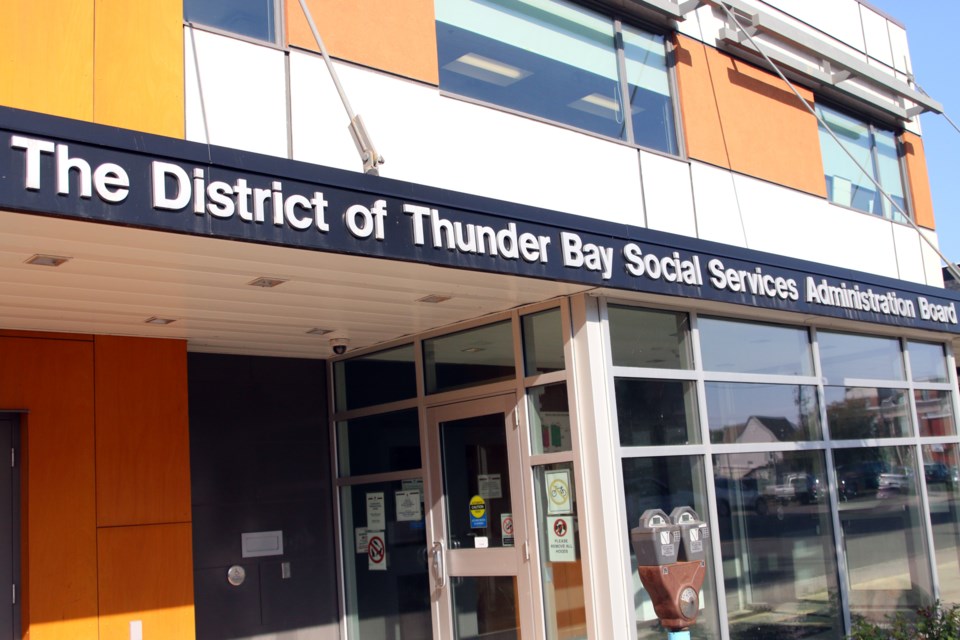THUNDER BAY – The agency that oversees social housing in Thunder Bay has rebuffed an invitation from the city to publicly discuss concerns over drug trafficking in its buildings.
Lucy Kloosterhuis, chair of the Thunder Bay District Social Services Administration Board (DSSAB) and mayor of Oliver Paipoonge, said the lines of communication remain open, but a public meeting isn’t the right venue.
“I don’t feel we’re not being open with the City of Thunder Bay – if they ever have any questions or concerns, administration will certainly help them,” she said.
The DSSAB, which administers provincial funding for housing and other social programs in 15 district communities, has a clear complaints process for municipalities, she said.
Heeding the city's request would set a bad precedent, she said.
“If we were to go to the Thunder Bay council meeting and sit through a question period… then we also have 14 other municipalities that deserve that same attention,” she said. “We can't start to go to every municipality and address all these questions."
Coun. Kristen Oliver first raised concerns from residents of the DSSAB-operated Spence Court in November.
Many residents of the Westfort apartment complex are “petrified” over trafficking-related violence, she said at the time, after a homicide and other violent incidents last year.
She initially called on the DSSAB to beef up security and advocate to loosen laws governing evictions. Those calls were withdrawn and defeated by council, respectively, before the passage of watered-down resolutions including the council invite.
Thunder Bay city councillors fill six of the 14 seats on the DSSAB's board of directors. None of those representatives objected to the DSSAB’s approach when it was discussed at a Jan. 13 meeting.
Coun. Shelby Ch’ng suggested the city’s request unfairly targeted the DSSAB, which she said already does more to combat trafficking than other landlords.
“I wasn’t too thrilled with the initial resolution, because we simply don’t bring landlords before our council to give them a stripping down about cameras and… working with the police,” she said.
“I don’t feel there’s any more we can do as an organization to assist the police in trying to address the problems on our property,” said Conmee mayor Kevin Holland. “I think that’s a bigger policing issue.”
Coun. Aldo Ruberto echoed that assessment, saying the DSSAB is “doing everything we can within the rules" and that landlords all over the city faced the same issue.
The DSSAB has taken concerns seriously, said Kloosterhuis in an interview Tuesday, adding it has a “very, very good working relationship” with Thunder Bay police.
“It has gotten worse, it certainly has,” she said. “Unfortunately, from what we know, many of these problems come from outside of the city. They move in and use vulnerable persons to open their homes to drug dealing."
"The police know what’s going on, and I believe the DSSAB is doing its utmost to try to stop any of this from happening.”
The agency has made security improvements, installing well over 900 cameras at its Thunder Bay buildings in recent years. It declined to say how many of those are at the Spence Court location, citing "security reasons."
The agency uses security services at many of its rental properties, which were enhanced about a decade ago following a third-party review, said DSSAB CAO Bill Bradica. The DSSAB is proceeding with another independent security review this year, he said.
Ultimately, Kloosterhuis said the province must provide adequate funding to address addiction and mental health issues, which she identified as root causes.
“When people are taken off the street… and we put them in an apartment building, it doesn’t usually work out very well,” she said. “They need more than just a place to put their head safely down at night – they need a lot of services and counselling.”
“We do have a lot of good success stories if we use [transitional housing]. Unfortunately, we do not have very many transitional [units] in Thunder Bay – not just [here], right across the province.”
City manager Norm Gale noted senior staff from the city and DSSAB regularly connect, and were working on shared advocacy campaigns, including for greater provincial support.
